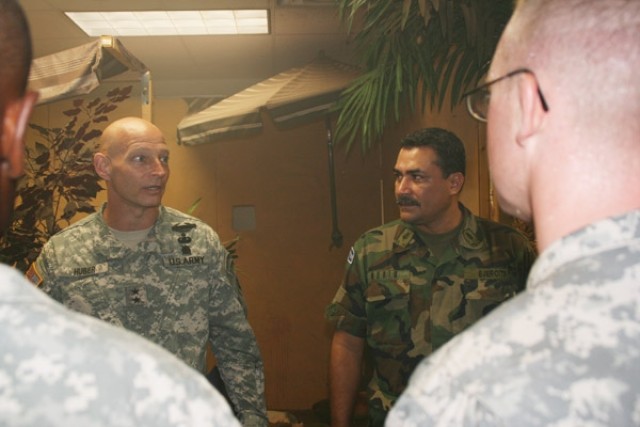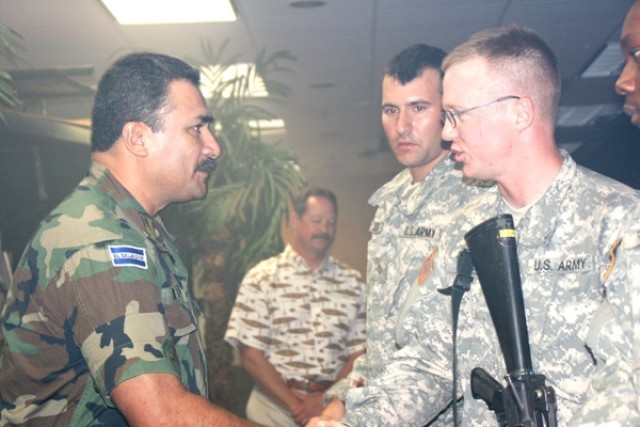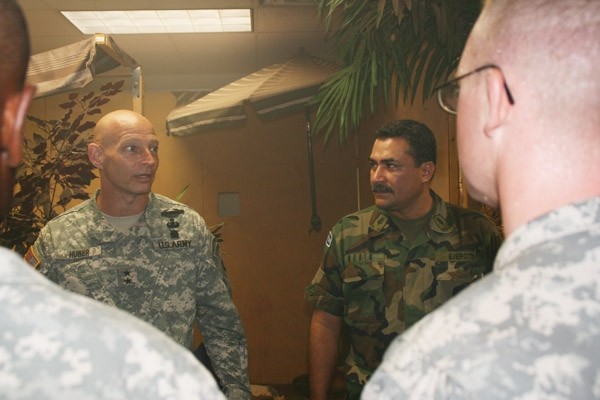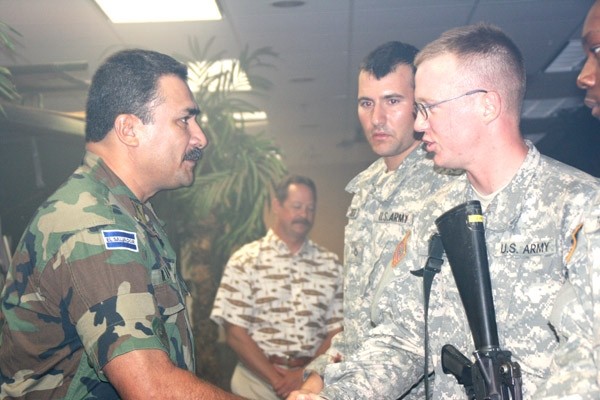FORT SAM HOUSTON, Texas --- Maj. Gen. Keith Huber, commander, U.S. Army South, escorted Brig. Gen. Ruben Rubio, chief of staff, army of El Salvador, to the United States and El Salvador 2nd Bilateral Army Staff Talks at the Department of Combat Medic Training July 2.
The staff talks allow both countries to meet and collaborate over medical treatments and share new information and innovative ideas to help better train their Soldiers for combat.
"This is a great opportunity for the Army Medical Department to work with one of our Global War on Terrorism partners," said Col. John Luciano, dean, Academy of Health Sciences.
One of their stops was the Department of Combat Medic Training. The visitors were greeted by Col. John Cook, commander, 32nd Medical Brigade, and Luciano.
The group met to discuss the Combat Medic Training 68W Program. Rubio and his staff were briefed on the seven-week course that includes National Registry of Emergency Medical Technicians-Basic certification.
Following the brief, combat medic personnel gave a tour of the Combat Training Patient Simulation and provided a Soldier medic training demonstration for Rubio and staff on how training is conducted in a combat village scenario. They also visited the trauma lane where Soldiers practice assisting a wounded Soldier. Students are timed for their response to aid and have the patient moved out of harm's way.
The combat medic staff explained why there were three Soldiers to assist the wounded. One Soldier stands on guard for security, the second gives medical treatment and the third helps insert an IV.
"A Salvadorian went through a difficult experience not too long ago and we are grateful that the life of a Soldier was saved by combat medics and the medical treatment at Brooke Army Medical Center," said Rubio. "Now that we are here, we are able to see the new training techniques that Soldiers go through and the necessity to continue with the training for combat."
Rubio said he is grateful for the opportunity and is fascinated by how well U.S. Soldiers are trained for combat.
He said, "We are living in a critical moment and based on how Soldiers are trained it is very important that they can save lives and that is great.
"I want to thank the U.S. Army for the excellent care and support they gave in saving my Soldier's life in Iraq. I was very impressed to hear that it took 10 minutes for a helicopter to arrive to get my Soldier out of harm's way and that the Soldier medics continued to provide medical aid," said Rubio. "Thank God no one died."




Social Sharing